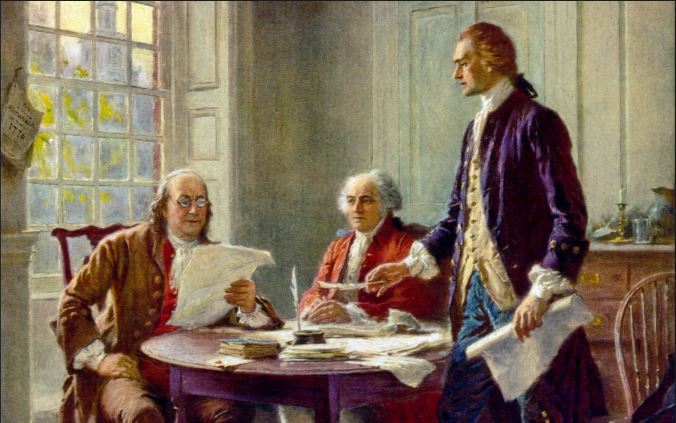Talk about the most fundamental of failures — when not nearly enough Americans understand the opening clause of the Declaration of Independence, you know conservatives are huge failures in the information war. Here is James R. Rogers writing at First Things:
The right to “the pursuit of happiness” affirmed in the Declaration of Independence is taken these days to affirm a right to chase after whatever makes one subjectively happy. Further, the Declaration doesn’t guarantee the right to happiness, the thought usually goes, but only the right to pursue what makes you happy. But this reading of the Declaration’s “pursuit of happiness” is wrong on both scores.
“Happiness” in the public discourse of the time often did not simply refer to a subjective emotional state. It meant prosperity or, perhaps better, well-being in the broader sense. It included the right to meet physical needs, but it also included a significant moral and religious dimension. In correspondence between James Madison and James Monroe in 1786, Madison notes that “happiness” cannot simply be identified with meeting people’s interests, but includes a higher reference:
There is no maxim in my opinion which is more liable to be misapplied, and which therefore needs elucidation, than the current one that the interest of the majority is the political standard of right and wrong. Taking the word “interest” as synonymous with “ultimate happiness,” in which sense it is qualified with every necessary moral ingredient, the proposition is no doubt true. But taking it in its popular sense, as referring to the immediate augmentation of property and wealth, nothing can be more false.
The Massachusetts Constitution of 1780 affirms that “the happiness of a people and the good order and preservation of civil government essentially depend upon piety, religion and morality, and . . . these cannot be generally diffused through a community but by the institution of the public worship of God and of public instructions in piety, religion and morality.”
So, too, Article 3 of the Northwest Ordinance of 1787 affirms that “religion, morality, and knowledge” are “essential to the happiness of mankind.”
Read more: First Things

